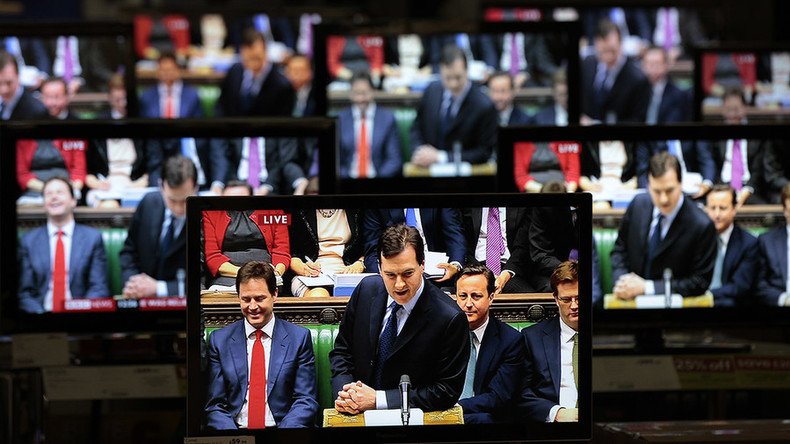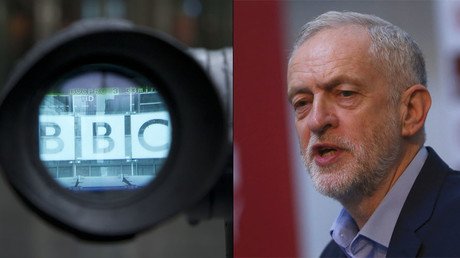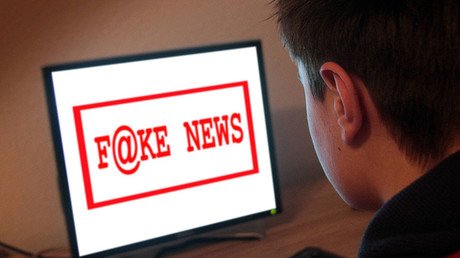'Western media losing viewers as audiences seek alternative news sources'

The current trend is that the corporate media is losing viewers, it is losing readership, says Mike Raddie, co-editor of BSNews. People are turning to other forms of journalism, and in some cases even becoming journalists themselves, he added.
WikiLeaks is accusing the BBC of spreading 'fake news' after a senior journalist suggested the whistle-blowing site's revelations lend support to particular candidates in the run-up to France's presidential election.
Here is UK state TV's @bbcnickrobinson spreading false info to 723k people. Nick, WikiLeaks Tweeted info on all candidates. Macron the least
— WikiLeaks (@wikileaks) 7 февраля 2017 г.
The BBC responded that it doesn't present unsubstantiated claims as fact and broadcasts a range of views. It also said that the episode of The Inquiry follows the BBC's editorial standards.
RT: Why did the BBC lash out at WikiLeaks about the alleged bias of its revelations? Is this an ethics debate now?
Michael Raddie: I think this is just the M.O. of WikiLeaks is completely against the operation of the BBC. If we think back, the former Director-General of the BBC back during the WWII, Frederick Ogilvie, he stated that his aim for the BBC was to turn it into a fully effective instrument of war. And that hasn’t changed. If you look at all the wars in the recent past, since the 1980s upwards, the BBC is either under-reporting war where we’ve been the British Army and the British special operations groups have been covertly in battle; when there is an overt war, the BBC is always drawing out support for it in the run-up to the war, as we saw it with Iraq, with Libya. And then they never tell us the true facts of exactly why we went into the certain country, why we toppled the regime, why we toppled the government, etc. They are at loggerheads for a very good reason.
The BBC is about fake news and although it claims to be objective and truthful, it has been found out on many occasions. Some of the academic studies done about the Israeli-Palestine conflict show the inherent bias within the BBC from reporters all the way up to the Director-Generals. It is not surprising. WikiLeaks is obviously all about transparency and protecting sources and it also has an unblemished and perfect record in an accuracy of its leaks.
RT: Why was Russia the only country to be linked with the accusation?
MR: I think the BBC and most Western media at the moment are always Russia-bashing. It is a nice scapegoat to have, isn’t it? If they can’t explain something or goes against their narrative, then it’s Russia’s fault, obviously. That is par for the course. We saw that with the DNC leaked emails and the election of Donald Trump that was ‘obviously’ President Putin’s personal intervention. That is what they would have us believe.
So, whatever the BBC says we have to take with a big pinch of salt. As it turned out, the actual program, I think it was aired on World Service on The Inquiry program, the presenter actually did ask herself the question at the very end and said “Can WikiLeaks revelations be trusted?” and she answered it “Probably, yes”. She understands that WikiLeaks has an unblemished record in accuracy. So, the answer is obviously yes, so there is no fake news coming out of the WikiLeaks organization…
RT: Two days ago the online encyclopedia Wikipedia called the Daily Mail "an unreliable source for poor fact checking and sensationalism" and prohibited references to it in its articles. Is banning the Daily Mail justified in your opinion?
MR: Completely justified. The Daily Mail, like The Sun, is a tabloid newspaper. I think it is read by millions of people for entertainment value only. No serious news gatherer or observer of international events would ever trust the Daily Mail or The Sun. It would be ridiculous. There are people that read it; there are people I know that read it. And I can only charitably say that they are doing it for entertainment reasons. It is salacious, it is titillating but it is not serious journalism. It is very sensational, but its main aim I think is to drive a wedge between working-class groups. There is always an anti-immigration bias and there is always working people to those unemployed people. So, that kind of bias and that wedges driven down and they ignore the big picture, they ignore the massive crimes going on in our financial industry, and they ignore the massive crime that is the military industrial complex. But they will drive a wedge between working class groups so that everyone is fighting amongst each other and miss the big picture. That is what Daily Mail journalism is all about. So, it is definitely not a reputable source and I can understand Wikipedia for stating the obvious.
RT: In the long term is this good for journalism and the public? People won't accept things at face value anymore and journalists have to abide by the rules of their craft…
MR: I think the readers are already finding other sources of information. They are going over to alternative media. They understand the likes of the BBC, the likes of the ITN Channel 4 news. They’ve been caught out so many times now. And especially when it comes to foreign policy, but also with domestic policy and especially with religious angles and diversity. Lots of this fairly sensitive domestic stuff, as well as the foreign policy and war reporting they’ve been caught out repeatedly. And I think people are turning to their own journalism, they are becoming journalist themselves, and citizen journalism is actually going out and finding the truth or they are looking to the Internet.
And the Internet, although it is a minefield when it comes to information, there are some trusted resources out there. There are plenty of people - for instance, Vanessa Beeley and Eva Bartlett in Syria.They are really trusted sources, they are not part of the mainstream media, but they can be trusted because they are on the ground, unlike lots of journalists that report on Syria but from Beirut or London, for example.
The trend is certainly the corporate media is losing viewers, it is losing readership. We see in the Guardian this week they’ve just announced they are hemorrhaging money. I think a lot is going to happen within that space where traditionally that media is going to start dying down, they are going to start losing revenue in terms of advertising, but they all follow the same model obviously, they are all part of the propaganda model.
The statements, views and opinions expressed in this column are solely those of the author and do not necessarily represent those of RT.















